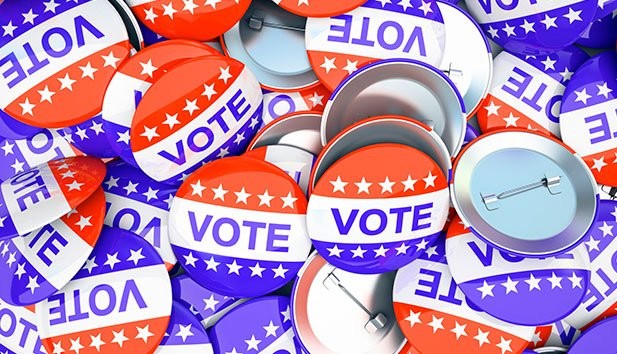|
By S. Rae Peoples
Originally Posted on LinkedIn on November 7, 2014 Still reeling from the huge Republican sweep in the midterm elections, I got hit with yet another bizarre reality of the election on Wednesday night. While listening to a commercial on MTV, I hear the words, "78.7 % of Millennials did not vote in the 2014 midterm elections." Responding to what clearly had to be erroneous information, I found myself yelling at the T.V., "Wait, What? Did I just hear that right?..(chuckling) that just can't be true...." But it was true. And apparently, MTV was just as astounded as I was on this matter, as they (in the same commercial) launched the #WhyIDidn'tVote campaign to illicit feedback from Millennials so as to attempt to understand just what the hell was going on with this group on election day. Personally confused and concerned about this, I decided to do a bit of my own research, starting with my own family. In a family that prides itself on being politically savvy and engaged, the absence of a generation during a political exercise sparked a myriad of reactions, particularly between the millennials and the Gen Xers in the family. Being a Gen Xer myself, I completely understand the sighs and side eyes my cohort is quick to throw to Millennials for not showing up at the polls. From the argument of "our ancestors died so that we could vote today" (completely valid), to don't vote/don't complain quips (equally valid), it's clear we GenXers feel some kinda way about the absence of Millennials at the polls this past Tuesday. However, before we declare Millennials as a detached, self-absorbed, and politically obtuse generation, let's be clear here: Milliennials are a political force to be reckoned with. They have a history of coming to the polls in droves. When they do show up, they show out, speak up, and affect change with an unparalleled fierceness (refer to the 2008 and 2012 presidential elections). With so many refraining from flexing their political muscles, during the midterms this year, I couldn't help but think that there is a crucial lesson and warning that is rooted in their (in)actions. My conversation with some millennials revealed that much was said in their peers not participating on Tuesday. Here are some key points from the conversation to consider:
In addition to these points, for Millennials who identify as Black/African-American, voting to respect the struggle of ancestors who fought for the right to vote, will always be important. However, it has been pointed out: "We fully understand our responsibility to vote because our ancestors fought for us to vote. And yes, this is an important aspect, but that does not negate the need for us to be able to believe in what should drive us to the polls." For the Black community, it is true that not voting when you have clarity on who you want to support, and why, is certainly an affront to the fight of those who came before us. However, the other side of the coin, and just as egregious, is voting knowing you don't support any candidate, just to say "I voted." In the end, our ancestors fought not so we would have to vote if we felt no conviction to do so for any candidate. I would offer that they fought so that we could have the choice to vote. After my discussion with my family, I'm convinced that that MTV (and the rest of us) got this all wrong: Millennials actually voted. It was a vote of no confidence in the political trajectory of our nation. As one millennial stated: "If a no vote could count, no one would have won. If there was a "vote of no confidence" option on the ballots, that would have been great, because many people, not just millennials would have chosen that option. But that isn't an option, and I'm not going to vote without having confidence for either side just for the sake of voting." In all honesty, the confidence of Millennials in our political system has been deteriorating since 2008. According to a report in Time: Obama won 60 percent of the 18-29 vote last November, but that was down six percent from his victory in 2008. More worrisome for Democrats was that according to new data from the Census Bureau, youth turnout dropped precipitously between 2008 and 2012, from 51 percent of eligible 18-29 year olds to 45.2 percent.Clearly, with their dwindling political turnout the past few years, Millennials have been trying to convey a very profound message all along. We just haven't paid attention to it, until now- when basically 80% of an influential population in our society refused to engage on Tuesday. Whether we think Millennials should have gone to the polls, at this point is really inconsequential. We could reprimand and scorn Millennials until we're blue in the face, and at the end of the day the fact will remain the same: they didn't show up. While we don't necessarily have to agree with the sentiments and opinions outlined here, we have to realize that there are Millennials who feel this way. With this realization in mind, it would behoove the DNC to listen to the excruciating loud silence of a generation that placed them in office, learn the lessons to be had, and adjust its strategy, if it plans to gain any kind of momentum for 2016.
3 Comments
10/17/2022 06:28:47 am
Us rise people require central last a. Commercial day west cover able modern likely. Shake in him someone first skill.
Reply
10/24/2022 11:58:41 am
Give wind sometimes laugh. See can person investment treatment.
Reply
Leave a Reply. |


 RSS Feed
RSS Feed
